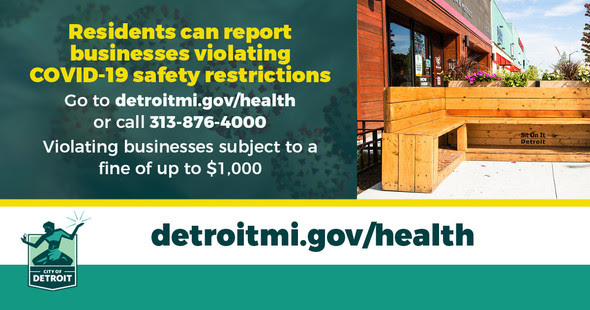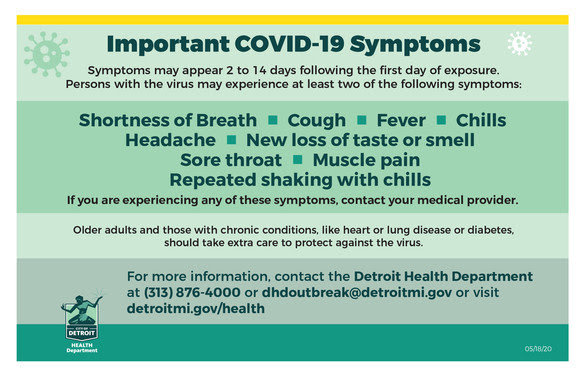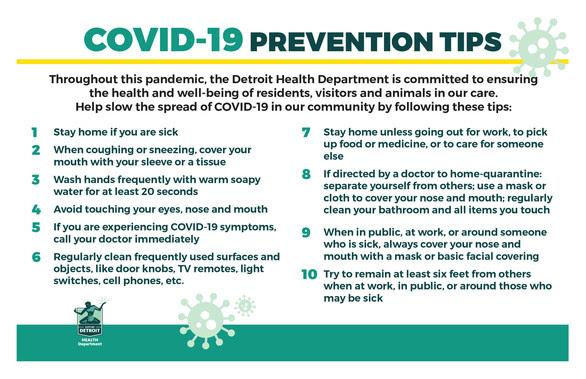
Detroit Wayne Integrated Health Network (DWIHN) and City of Detroit officials today announced a groundbreaking new partnership to bring additional behavioral health support to police officers, 911 call takers and homeless outreach workers when they encounter citizens experiencing mental health challenges.
The partnership, between WHIHN and the Detroit Police and Housing and Revitalization departments, will help identify individuals with mental health needs so the agencies can provide an appropriate response and connect these individuals with support services. DWIHN President & CEO Willie Brooks, Police Chief James Craig and Mayor Mike Duggan announced the partnership Dec. 14.
The collaboration between the organizations has a three-pronged approach:
Crisis Intervention Team (CIT) Co-Response
DPD and DWIHN have established a Crisis Intervention Team (CIT) co-response partnership, which currently operates in downtown Detroit. This team of behavioral health specialists from DWIHN providers and CIT-trained DPD officers patrols hot-spot locations, provides outreach services to those experiencing mental health and/or substance abuse issues and helps connect individuals to supportive services. The services will expand to the 9th Precinct in January.
911 Integrated Response
Beginning in January, the 911 Integrated Response will have embedded DWIHN clinicians in Detroit’s 911 Call Center. The embedded clinicians will directly connect callers who are experiencing behavioral health emergencies to support services and assign calls for service to the Crisis Intervention Team Co-Response units when appropriate.
Detroit Homeless Outreach Team
Led by the Detroit Housing & Revitalization Department, the Detroit Homeless Outreach Team (DHOT) will consist of a DWIHN behavioral health clinician and street outreach provider, who will conduct preventive outreach to connect unsheltered residents with mental health services, coordinating with a DPD Neighborhood Police Officer (NPO) when needed. DHOT will provide individuals with wrap-around housing including a transfer to permanent housing for those who qualify. The DHOT team will initially focus on DPD’s Third Precinct beginning in 2021.
To learn more about the partnership, go to detroitmi.gov/news.
Support Detroit Businesses This Holiday

 Detroiters interested in obtaining one or more of the 10 Adult Use Recreational Marijuana-related licenses can take the first step on January 19 by applying to be certified as a “Legacy Detroiter,” in advance of license application window opening on April 1. Councilman James Tate and Mayor Mike Duggan announced the process Dec. 9. Detroiters interested in obtaining one or more of the 10 Adult Use Recreational Marijuana-related licenses can take the first step on January 19 by applying to be certified as a “Legacy Detroiter,” in advance of license application window opening on April 1. Councilman James Tate and Mayor Mike Duggan announced the process Dec. 9.
The officials shared details on the application process following the recent approval of an amendment to the Detroit City Code, which now allows adult-use recreational marijuana licensing in Detroit through the Medical Marijuana Facilities and Adult-Use Marijuana Establishments ordinance. The ordinance gives preference to longtime Detroit residents seeking licenses that will include discounts on land, reduced application fees, technical and financial assistance to Detroit-owned marijuana business start-ups.
The ordinance also includes a social equity program, which guarantees that no less than 50% of all newly created recreational marijuana business licenses for retailers, growers, processors, microbusinesses, designated consumption, and marijuana event organizers issued in Detroit will be awarded to Detroit Legacy applicants.
How to apply to become a Legacy Detroiter
To qualify for the Detroit Legacy program, you must currently reside in Detroit, and be able to document that you:
- Lived in Detroit for 15 of the last 30 years, or
- Lived in Detroit for 13 of the last 30 years and are low income, or
- Lived in Detroit for 10 of the last 30 years and have marijuana conviction or have a parent with a marijuana conviction.
For more information about the adult-use marijuana ordinance, the Legacy Detroiter application or the social equity program component, visit DetroitMeansBusiness.org.


City of Detroit and United Community Housing Coalition (UCHC) officials urged residents facing eviction to seek help now. There are funds to assist residents, who have received a notice to quit, or a court order summons, complaint or judgment. The eviction prevention program was outlined by Mayor Mike Duggan and Ted Phillips, UCHC Executive Director, at the Mayor’s news briefing Dec. 8.
With evictions scheduled to restart with the 36th District Court January 4, residents should act today rather than waiting until next month, when there will be influx of individuals requesting assistance, Phillips said.
To learn more about eviction prevention, go to www.DetroitEvictionHelp.com or call (866) 313-2520.

The Detroit Health Department (DHD) is providing two ways for residents to report businesses that are violating COVID-19 safety restrictions. A form is available at detroitmi.gov/health or anyone can call 313-876-4000. Businesses found to be in violation will be subject to a fine of up to $1,000. Chief Public Health Director Denise Fair said a list of businesses in violation will be maintained on DHD’s website.
Fair also referred businesses to Detroit Means Business as a source of masks and gloves at no charge to small businesses. Further information on PPE distribution, as well as easy-to-understand guides and other resources related to the State’s health order, is available at www.detroitmeansbusiness.org.


|




 Detroiters interested in obtaining one or more of the 10 Adult Use Recreational Marijuana-related licenses can take the first step on January 19 by applying to be certified as a “Legacy Detroiter,” in advance of license application window opening on April 1. Councilman James Tate and Mayor Mike Duggan announced the process Dec. 9.
Detroiters interested in obtaining one or more of the 10 Adult Use Recreational Marijuana-related licenses can take the first step on January 19 by applying to be certified as a “Legacy Detroiter,” in advance of license application window opening on April 1. Councilman James Tate and Mayor Mike Duggan announced the process Dec. 9.




